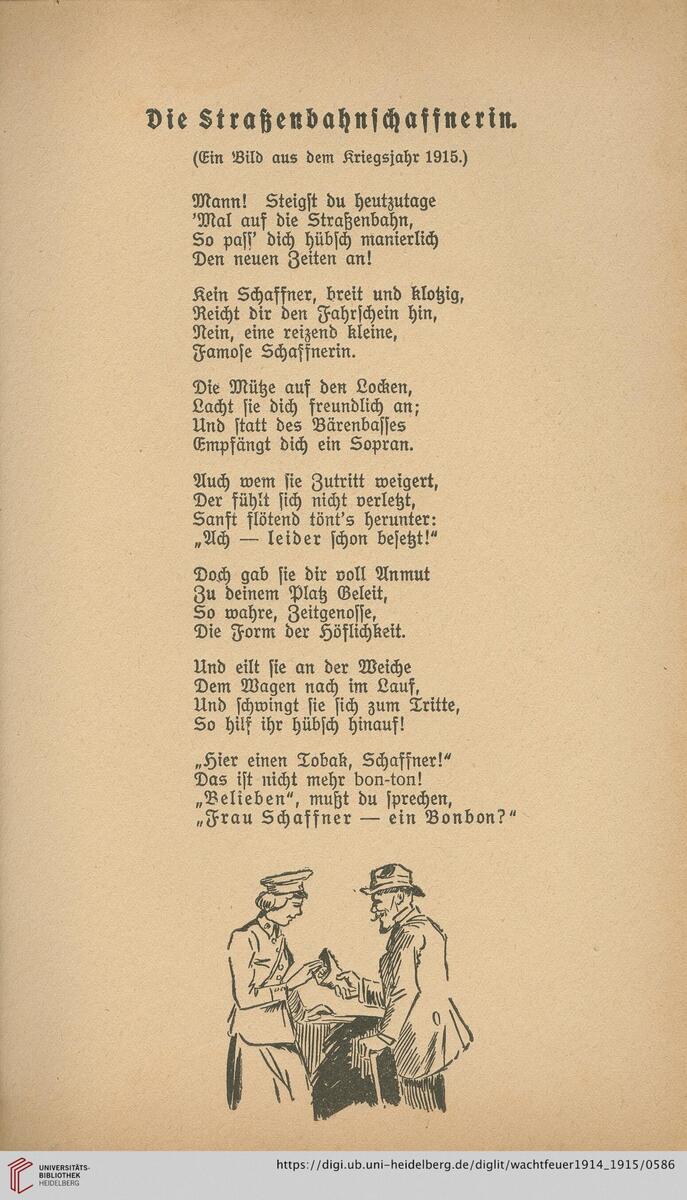Source
The Female Street Car Conductor
(An image from the war year 1915.)
Man! When you get on the tram these days
Make sure you
behave yourself
And adapt to the new times!
No
conductor, broad and bulky
Hands you your ticket
No, it
is a charming little
Splendid female conductor
With her cap on her curls
She smiles at you
kindly
And instead of a deep bass voice
You are greeted
by a soprano.
Even those she refuses entry
Do not feel hurt,
For
she calls down in a gentle flute-like voice:
“Oh, sorry, the
car is full!”
But if she graciously
Escorts you to your seat,
Then,
my friend,
Be polite.
And if at the switch she hurries
After the car in a
run
And swings herself up to get on,
Help her up
nicely!
“Here's some tobacco, conductor!”
That's no longer
bon ton!
You must ask,
“Would Miss Conductor
Like— a piece of candy?”
Source: Wachtfeuer: Künstlerblätter zum Krieg, No. 58 (1915), p.8. Available online at: https://doi.org/10.11588/diglit.30347#0586
